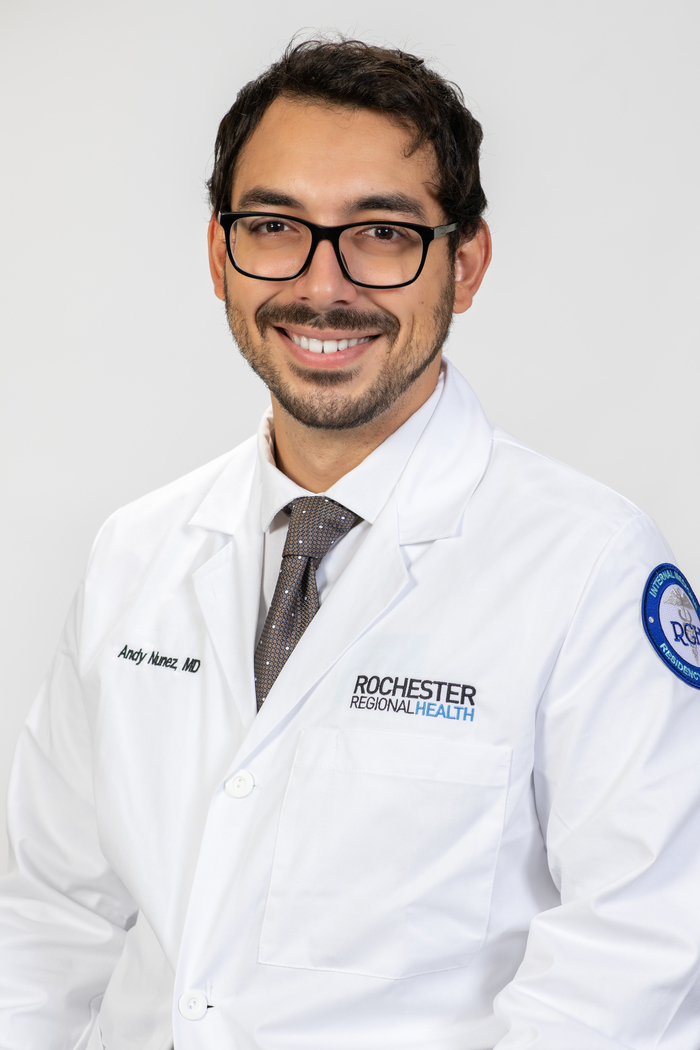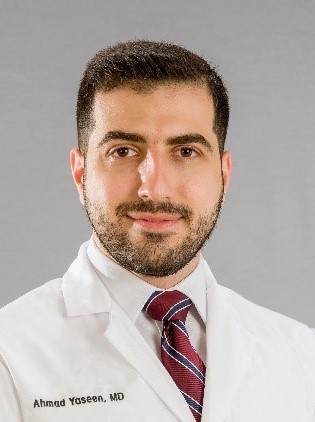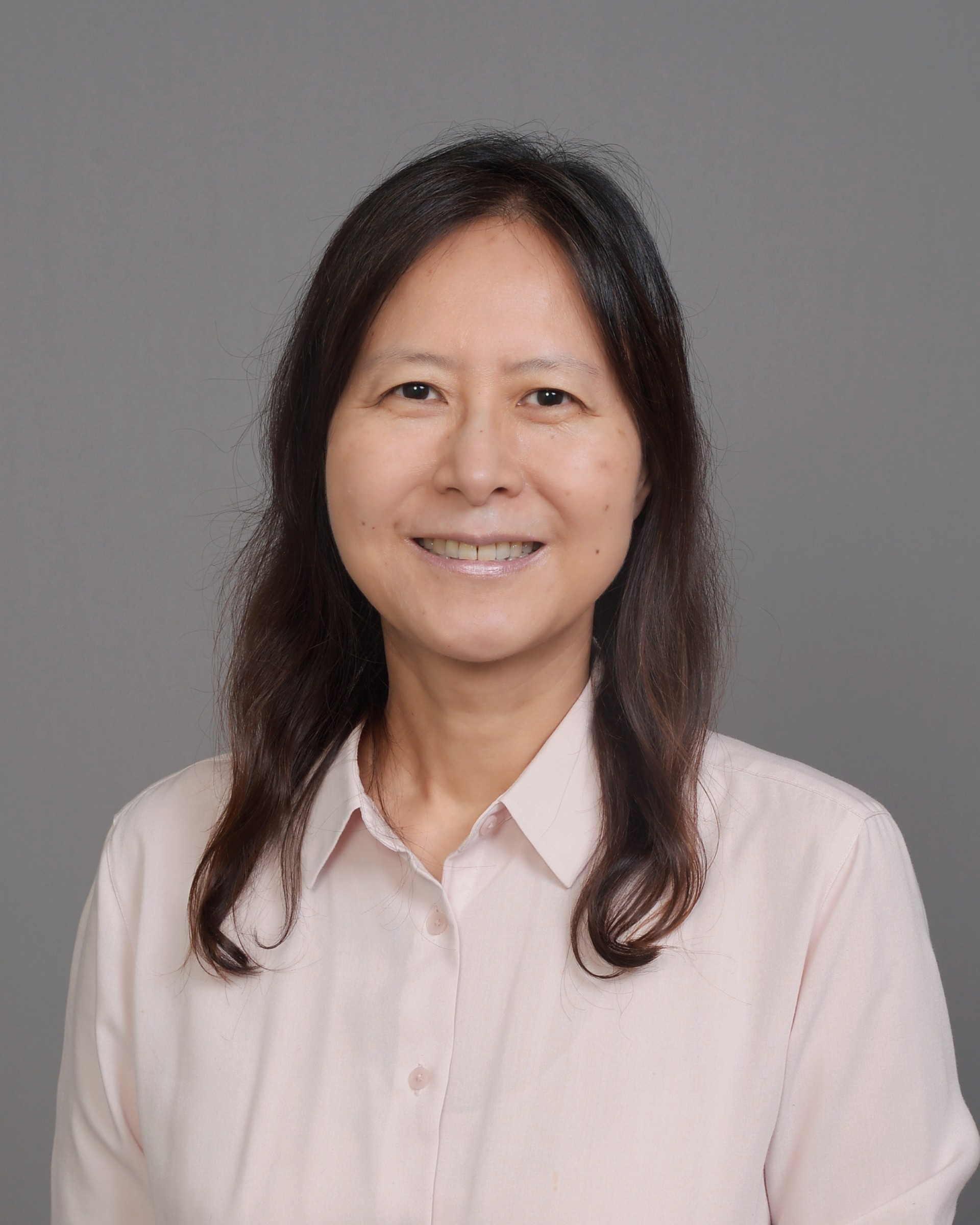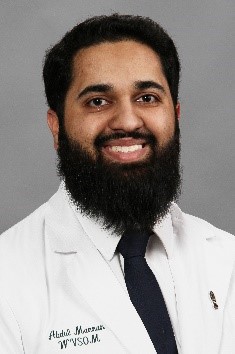Clinical Informatics Fellowship
Rochester Regional Health
Fellows
PGY5 Fellows

Mostafa Balboul, MD
Medical School: SUNY Downtown Health Sciences University College of Medicine, United States
Testimonial:
Informatics as a field encompasses the different domains of our usage of technology to augment the delivery of healthcare, from clinical decision support to clinical documentation to patient education. During my residency training, I saw technological initiatives concomitantly improve our patient care and quality of life, and appreciated the profound effect that technology has on our medical practice. I believe that stewardship of the technology we use should fall into the hands of medical professionals who are stakeholders in improving the experience for patients, physicians, and all other medical professionals. I hope to use my own skill set in the service of this objective.
Since I touched base with Rochester Regional, even as an applicant, I was met with supportive and courteous leadership willing to communicate with me regarding the strengths and opportunities available at our program. The cooperative environment and breadth of study is palpable within the program, and the initiatives being undertaken illustrate a deeper understanding of the technological concerns physicians face, and a willingness to develop creative and thorough solutions to those problems. I am enthusiastic about learning within such an avant-garde department and contributing to our workflows as well.

Orlando Andres Nunez Isaac, MD
Medical School: Universidad Marista de Merida, Mexico
Testimonial:
Clinical informatics is an amazing and thought-provoking field of medicine that offers a unique opportunity to lead transformative changes within healthcare organizations. Personally, health disparities in medicine are an area of particular interest. I believe that technology and analytics can play a pivotal role in identifying and correcting these disparities, allowing for more equitable healthcare delivery. The ability that Clinical Informatics provide to us to uncover patterns and trends in data lets us target areas for improvement and guide interventions that promote health equity, among other exciting things.
Since I joined the RRH organization 3 years ago for my residency, I have become close to the faculty and staff that works here. During this time I have met friends and great co-workers that keep me motivated and engaged with any project, challenging or not. Being part of this program is a joy to me, and everyday that I share with the people here is exciting and refreshing.

Ahmad Yaseen, MD
Medical School: Tishreen University, Syria
Testimonial:
As an internal medicine physician, I am passionate about leveraging advanced technology to enhance patient care. Clinical Informatics allows me to integrate my medical expertise with technological solutions to improve healthcare delivery on a broader scale. I appreciate how informatics enables us to impact entire patient populations and support fellow physicians by streamlining workflows, enhancing data accessibility, and facilitating better decision-making. Embracing this field means being at the forefront of medicine’s future, where technology and patient care converge to create more efficient and effective healthcare systems.
I am particularly drawn to the RRH Clinical Informatics program because it offers a unique combination of academic rigor and practical experience. The integration of RIT’s comprehensive health informatics curriculum with hands-on training at RRH provides an ideal environment for learning and application. The faculty’s diverse backgrounds and their approachability enrich the learning experience. Beside the program’s commitment to support the fellows both professionally and personally to achieve their goals.
PGY4 Fellows

Jee Lee, MD
Medical School: Ewha Womans University School of Medicine, Korea (The Republic of)
Testimonial:
Medicine is entering a transformative era, with unprecedented innovation reshaping healthcare. Clinical informatics stands at the forefront of this evolution, adapting to rapid changes in medical practice. As a dynamic and evolving field, the roles and boundaries of clinical informatics are continually redefined. It’s unlikely that the program’s curriculum and objectives in 2025 will remain unchanged in two years. With AI-powered systems poised to handle routine tasks in the near future, we must strategically prioritize what to focus on, how to conduct research, and which steps to bypass—not only to eliminate redundancy but to push boundaries previously thought unattainable.
The Rochester Regional Health (RRH) Clinical Informatics Program, in collaboration with RIT, has seen remarkable growth since its inception. Renowned for its impactful projects, the program demonstrates excellence and innovation. My interview with the program director and faculty left me feeling warmly welcomed and inspired by their commitment to educating fellows. I am thrilled to join the RRH Clinical Informatics Program and eager to collaborate with the team to achieve our shared objectives while pursuing my personal goals.

Abdul Mannan, MD
Medical School: West Virginia School of Osteopathic Medicine, United States
Testimonial:
As a physician clinical informatician, I play a central role in the development, deployment, and refinement of healthcare technology that all healthcare workers and ancillary staff use on a day-to-day basis. As a physician specifically, I get to provide key user-experience feedback to developers and researchers to help optimize the experience of using technology to augment patient care. As healthcare becomes more digital, fragmented, and complex, it becomes vitally important to make sure technology is used ethically, with security, and actually helps improve patient outcomes, reduce cost, and increase access to good health and being a physician informatician enables me to use my background to accomplish that.
Given that my goal is to be a versatile clinical informatician, RRH provides the most holistic experience to set myself up for a future career in informatics. Whether that is healthcare leadership informatics or healthcare technology consulting, I found that RRH provides the education, resources, and network needed. It’s a large community based system that has achieved Epic HIMS stage 7 with a robust informatics department including physician leadership from various different specialties. Furthermore, through its collaboration with the Rochester Institute of Technology and the Masters in Clinical Informatics degree, the program provides the network, resources, and didactic education needed to learn the fundamentals of the current healthcare delivery model and understand what we can do to change it for the better.

Abhimanyu Aggarwal, MD
Medical School: Maulana Azad Medical College, India
Testimonial:
My personal experience with delivering patient care as an Infectious Disease physician forced me to think about avenues to streamline healthcare services and upscaling it on a community level. This is what drew me closer to Clinical Informatics. CI helps us adapt to the rapidly evolving landscape of systems-based medicine and organizational operations including preparation for any future pandemics and thus, strive for an emotionally and physically healthy public and providers.
The CI fellowship program at RRH offers a wonderful exposure in domains of clinical decision support system, quality informatics, and state-of-the-art technology acquisition and implementation. Two aspects about the fellowship program here that stood out for me were the training in leadership and change management, and the MS-HI degree through Rochester Institute of Technology. It also provides the opportunity to collaborate with state DOH on several projects during elective rotation. I am confident that the fellowship training at RRH will truly prepare me well for the next steps in my career.
